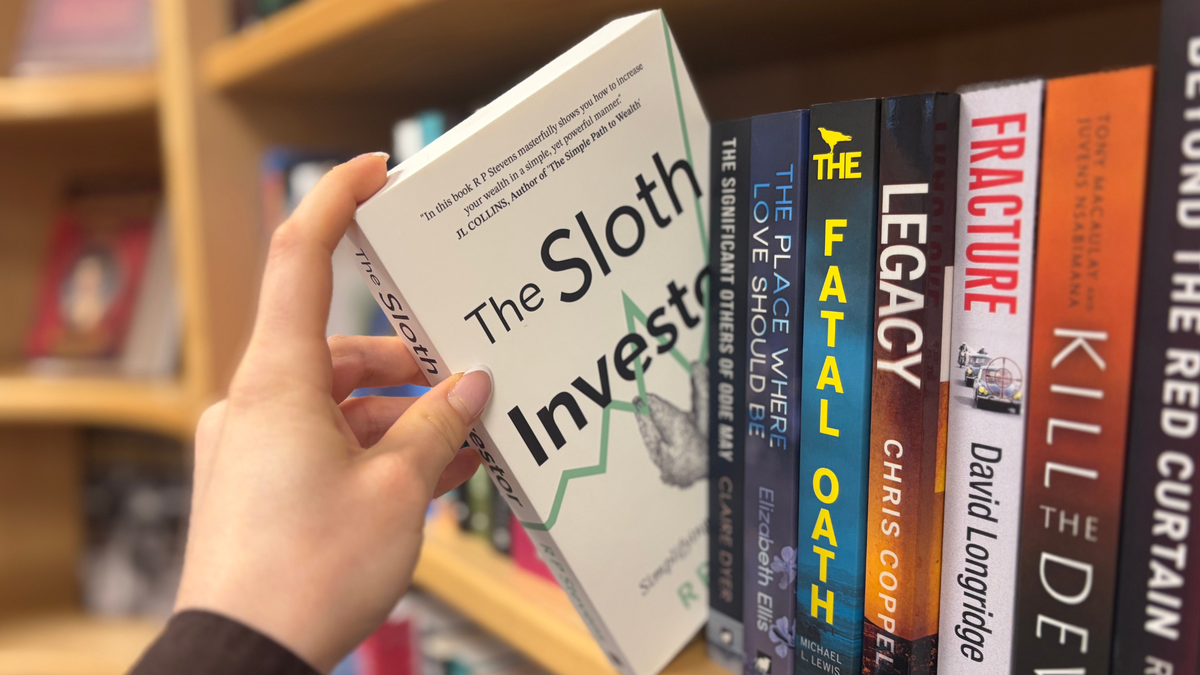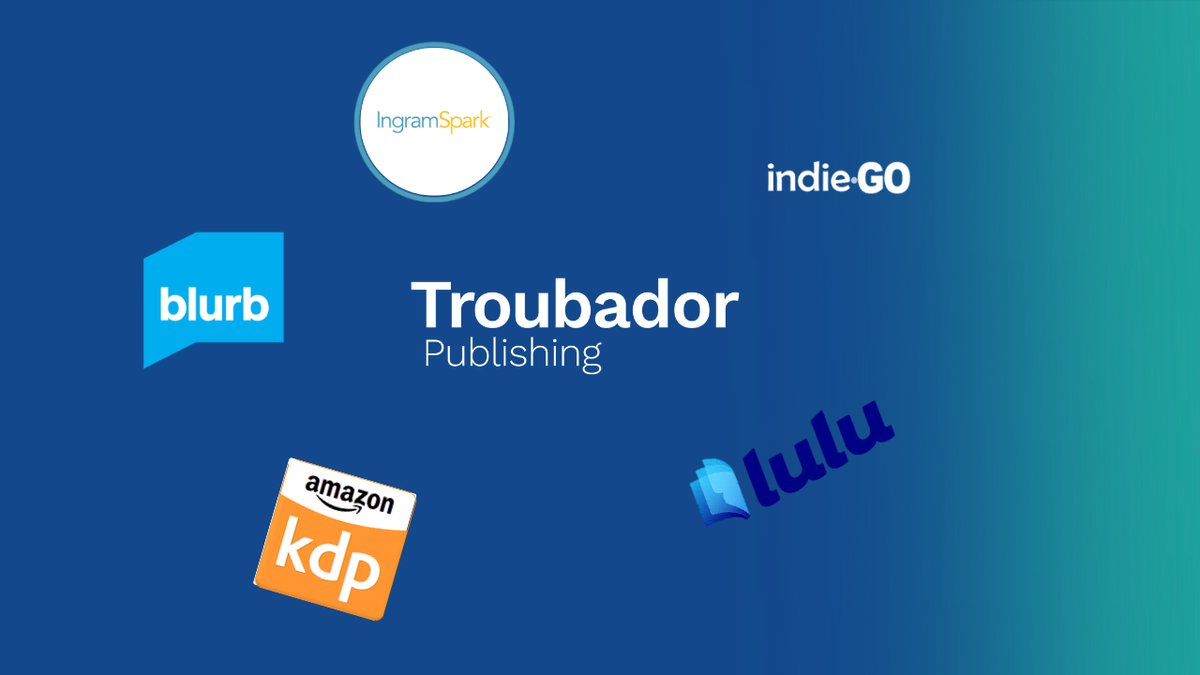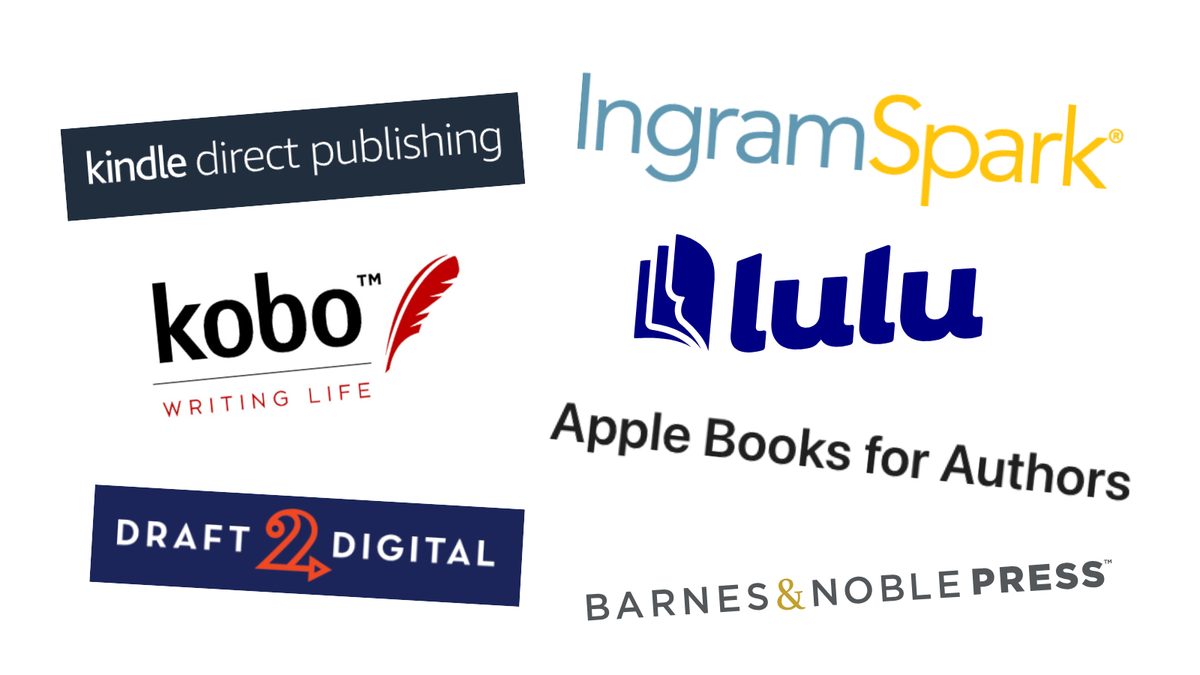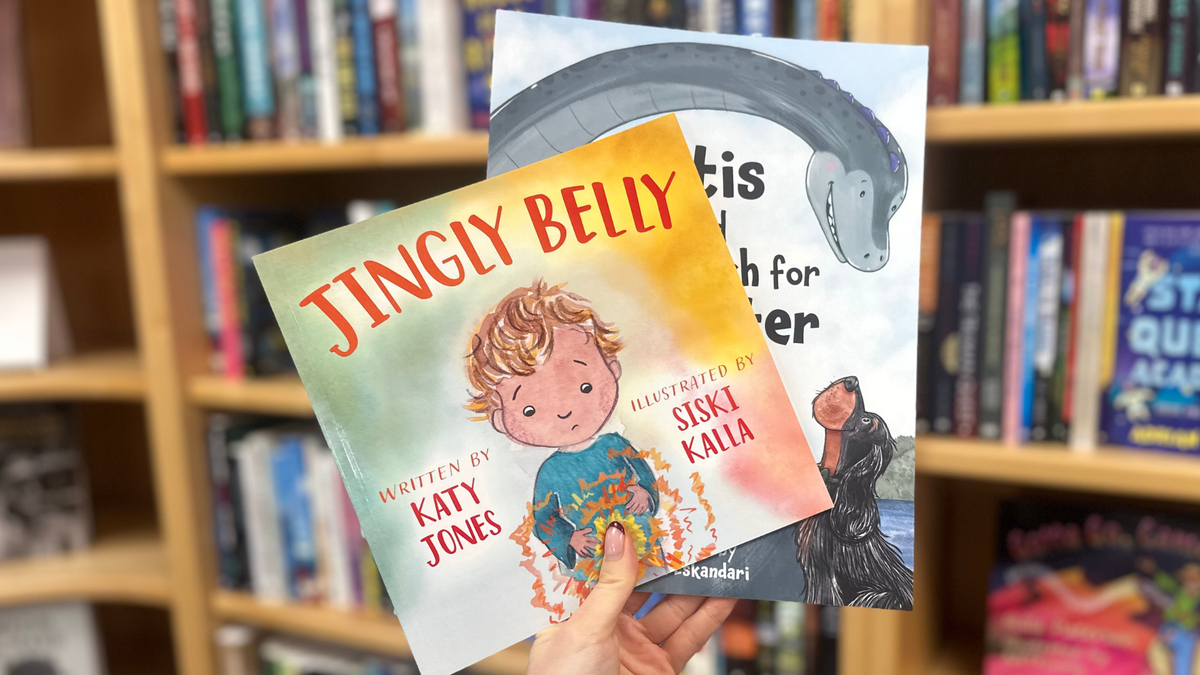
12th December, 2024
9 min read
7 Crucial Considerations for Self-Published Authors Vetting Publishers
Written by:
Alex Thompson
As a self-published author, finding the right publisher to partner with can significantly impact your book's success. While the promise of professional support is enticing, especially for authors with limited or no prior experience of publishing on their own, it’s essential to approach this decision carefully.
Based on the hundreds of conversations the Troubador team has with authors every year while they do their valuable research into which publisher they want to work with, here are our 7 crucial considerations authors need to keep in mind when evaluating potential publishers.
Transparency in Contracts
If an author chooses to self-publish, they must be prepared to invest either time, money, or a combination of both. For authors aiming to self-publish without incurring upfront costs, there are several options available - publishing through platforms like Amazon KDP, for instance. However, this route requires a significant time commitment. Authors must handle every aspect of the process, from formatting the typeset and designing the cover to managing all marketing efforts.
On the other hand, authors who wish to minimise their time investment or lack the skills needed for the complex aspects of publishing should expect to incur monetary costs. Professional services like editing, cover design, and marketing can be outsourced but come at a price.
For those considering working with a publisher, it’s crucial to secure a transparent, clear, and detailed contract. Avoid signing anything under pressure and ensure you fully understand the terms. The contract should outline your rights, royalty structures, and the specific services the publisher will provide among other things. Be cautious of vague language or clauses granting the publisher excessive control over your work.
If contracts feel overwhelming, consider seeking advice from legal experts or author support organisations like the Society of Authors. They can help review contracts and identify potential issues before you commit.
Ownership of Rights
At Troubador, we firmly believe that self-published authors should retain 100% of the rights to their work. After all, preserving creative ownership is one of the primary reasons many authors opt for self-publishing in the first place! Retaining your rights means you have complete control over how your work is distributed, marketed, and monetised, giving you the flexibility to adapt as opportunities arise.
For authors considering working with a publisher, it is essential to clarify from the outset who will hold the rights to your work. Don’t shy away from asking detailed questions about what rights you may be signing over and how those rights will be used. Understanding this early can prevent unexpected limitations later. For instance, some publishers might request exclusive rights that could restrict your ability to republish, license, or adapt your work in the future. This could include options like turning your book into a film or republishing it in new markets if you want to.
Be particularly cautious of publishers who impose restrictions that could hinder your long-term opportunities. While there are cases where sharing rights might make sense, always ask why such arrangements are necessary, especially in the context of self-publishing.
Ultimately, you may decide that working with a publisher who requires a share of your rights is the right choice for your goals. If so, ensure you fully understand what you are giving up and what you are gaining in return. Transparency is key, and any reputable publisher should be willing to explain their terms clearly and justify why specific rights are needed. Always make informed decisions to safeguard your creative freedom and future opportunities.
Marketing and Promotion Support
When evaluating a publisher, it’s crucial to examine the quality and scope of their marketing and promotion strategies. A strong marketing plan can play a pivotal role in your book’s success, ensuring it reaches the right audience. Look for publishers who offer tailored campaigns that align with your book’s genre and readership. Do they provide services similar to those offered by Troubador, such as traditional media outreach, managing paid advertising campaigns, or securing pre-publication reviews? Or are they unable to give your book the visibility it needs in the marketplace?
Often forgotten by authors, book marketing also involves making your book discoverable to the book trade. If having your books stocked in bookshops and retailers is your goal, this is an essential thing to think about ahead of publication. Is the publisher equipped to set up high-quality metadata and distribute it to retailers to maximise your title’s discoverability? Better still, do they have direct relationships with key retailers like Waterstones to give your book the best chance of discoverability there, too? In short, does the publisher offer the tools necessary to give your self-published book the best chance of success?
Be cautious of publishers that promise vague or generic marketing efforts, as these can leave your book struggling in an overcrowded market. Instead, seek publishers who commit to clear, measurable actions to boost your book’s visibility. Even the best-written book needs effective promotion to thrive; without it, your book may fail to gain the attention it deserves.
Royalties Transparency
Understanding how royalties are calculated and paid is essential when working with a publisher. Determine what percentage of sales you’ll earn (this will vary depending on the discount on the RRP that a retailer or wholesaler demands alongside any commission taken by the publisher, so be sure to understand what that looks like as well) and how frequently payments are made. Some publishers may take an inflated share of the profits when their services don’t justify the cut, but you’ll need to be the judge of what you are and are not happy with. Compare the offered terms to industry standards to ensure they’re fair and meet your expectations.
Transparent royalty structures are a sign of a reputable publisher, so ask for detailed breakdowns of what you can expect to make for sales through different sales channels. As with the contractual mentioned above, always review royalty terms carefully and be sure that you understand the terms before committing.
Quality of Services Offered
When selecting a publisher, it’s vital to evaluate the quality of the services they offer, including editing, cover design, marketing, digital publishing and distribution. Aside from the fact that your book deserves to be made to the best possible standards, these aspects are crucial to your book’s success and reputation in the market.
Start by assessing the standard of their work from titles they have already published. If they can stock books in bookshops like Troubador can, order from the likes of Waterstones or Foyles and explore the quality of the product for yourself. You will quickly be able to find out whether a publisher uses print-of-demand technology only (which typically produces a lower-quality product) over high-quality print runs. As well as the physical product, review previous projects they’ve handled to see if their editing, design, and overall presentation align with your expectations and the quality you envision for your book. High-quality editing ensures your manuscript is polished and professional, while an eye-catching cover design helps attract potential readers.
As discussed in an earlier section of this article, marketing is another key factor to ensure that your book gets in front of as many people as possible. Alongside marketing, evaluate their distribution capabilities. Can they ensure your book reaches major retailers and libraries, both digitally and in print? A publisher with strong distribution channels gives your book the best chance of being widely available and visible to potential readers.
Finally, if you are paying to work with a publisher then you are being provided with a service. As such, the publisher’s customer service capabilities are incredibly important to ensuring your publishing experience is as good as possible. Is the publisher’s team accessible by phone, email and in person? Are they helpful and answer your questions without hesitation? Do they seem to genuinely have your best interests at heart?
If the services offered fall short of your expectations or industry standards, it could significantly impact your book’s reputation and sales potential as well as your publishing experience. Don’t hesitate to explore other options if necessary.
Distribution Reach
Often overlooked by authors, a publisher’s distribution capabilities are essential for reaching specific goals, such as ensuring your book is available in major bookshops, online platforms, and libraries. While it’s easy for publishers to claim their books are widely distributed, meeting the necessary criteria for stocking in physical shops is more complex.
For example, print-on-demand titles typically won’t be stocked in bookshops. Our Operations Director, Chloe May, wrote a separate blog article comparing print-on-demand and traditional print runs but, in short, authors who wish to see their books in physical stores need to print in bulk and have access to the book trade - something not all publishers can offer.
Another important consideration for authors printing books in bulk is where to store them. Many publishers rely on third-party storage facilities to house the majority of their titles. While this may seem convenient, it can lead to delays and increased costs, as books must be handled by multiple parties when an order is placed. Ideally, a publisher will have its own warehousing facility, like Troubador does, where all books are stored and orders are fulfilled directly to retailers. This approach reduces both storage costs and delivery timelines, ensuring faster order processing and more efficient distribution.
From a digital standpoint, ensuring your ebooks and audiobooks are available across as many online platforms as possible is equally important. A publisher with a strong distribution network can significantly boost your book’s visibility and sales potential, and there is no reason why an author should not be able to access all those retailers if they want to.
A publisher’s distribution capabilities are crucial for maximising your book’s reach, both in physical stores and online. Be sure to choose a publisher who can offer comprehensive access to the book market.
Reputation and Author Testimonials
When choosing a hotel or restaurant, I’ll bet you check the reviews before you go. Well, when choosing a publisher, researching their reputation in the industry is essential. Look for online reviews, testimonials, and feedback from authors who have worked with them. A publisher’s track record can give you valuable insight into their professionalism, reliability, and the quality of their services. While the publisher will always have testimonials on their website, trust those that have been added to public-facing review platforms like Trustpilot, as they are not controlled by the publisher and will be genuine.
If possible, try to connect directly with authors who have previously published with the publisher. Their firsthand experiences can provide a clearer picture of what you can expect in terms of communication, support, and overall satisfaction. For example, while we have author ambassadors who can specifically talk to authors about their genuine experience of working with Troubador, we also welcome authors who want to connect with others we have worked with to discuss their experiences.
Genuine testimonials, particularly those from authors in similar genres, can help you assess whether a publisher’s approach aligns with your needs and expectations. A publisher with a strong reputation and positive author feedback is more likely to provide the support and services needed to help your book succeed.
Final Thoughts
Selecting the right publisher is a critical decision that can shape the future of your book. As a self-published author, you must weigh several key factors, from transparency in contracts and ownership of rights to the quality of services offered and marketing support. Carefully evaluate how a publisher handles royalties, distribution, and their overall reputation within the industry. Seek publishers who demonstrate clear, measurable actions to support your book’s success and ensure your goals align with their capabilities. Take the time to connect with other authors who have worked with the publisher, as their insights will help you make an informed decision. Ultimately, choosing a publisher with a strong track record, transparent terms, and solid services can provide the foundation for your book’s long-term success and visibility in the marketplace.















